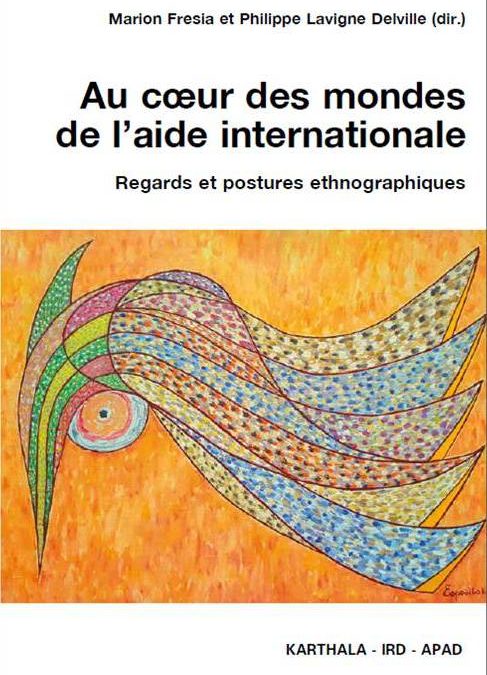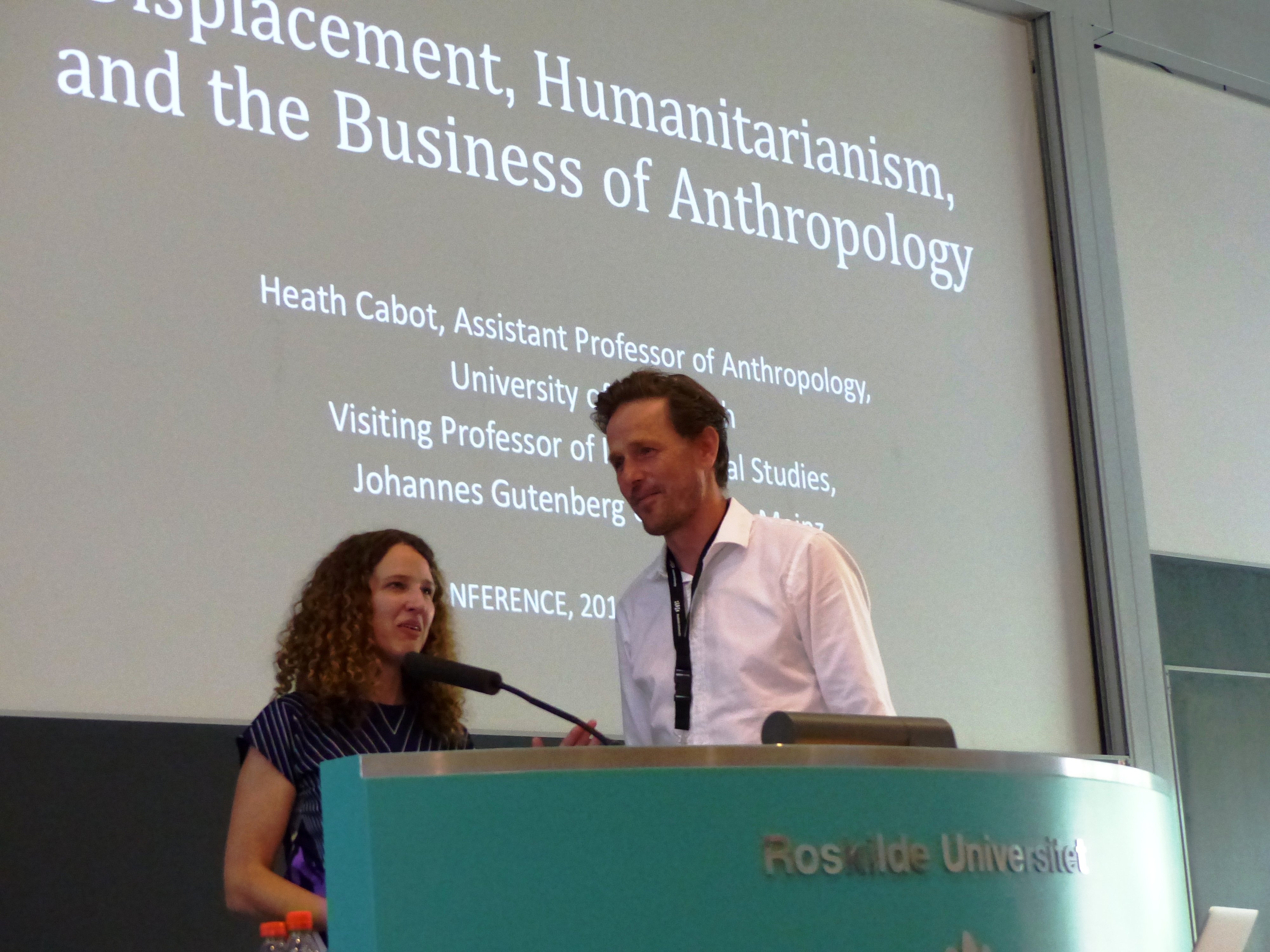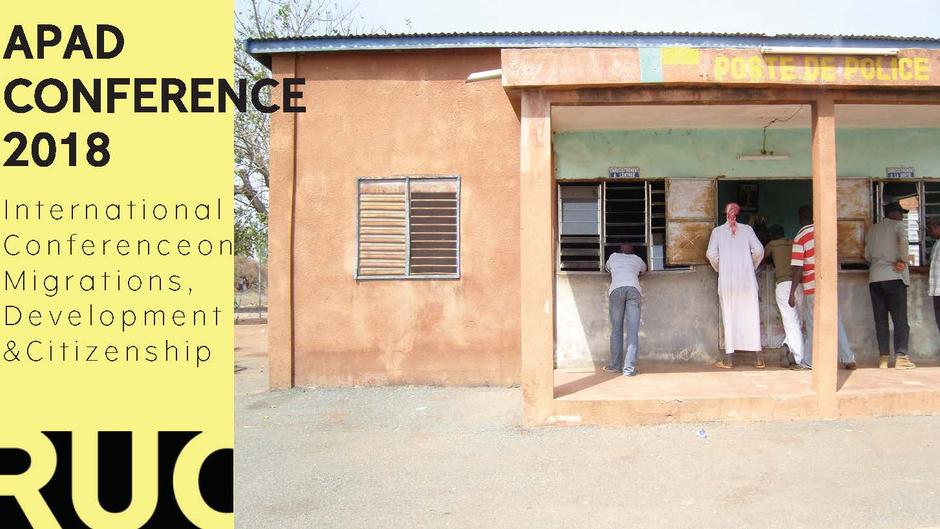
by Admin-Apad | 29 May 2018 | Actualités
Fresia M. et Lavigne Delville P. ed., 2018, Au coeur des mondes de l’aide internationale. Regards et postures ethnographiques, Paris/Marseille/Montpellier, Karthala/IRD/APAD.
Comment pensent et agissent, au quotidien, les professionnels de l’aide internationale et les agents des organisations nationales qui vivent de l’aide ? Comment se jouent les rapports entre organisations dans les chaînes complexes d’acteurs qui relient les conseils d’administrations des grandes institutions internationales aux populations dites « bénéficiaires » ? Quels modes de gouvernance globalisée l’aide internationale dessine-t-elle dans les pays où ses ressources, ses normes et ses institutions sont fortement présentes ?
A la croisée de la socio-anthropologie du développement et de l’anthropologie des organisations internationales, cet ouvrage permet de mieux comprendre les logiques politiques et institutionnelles des institutions de l’aide, la fabrique de leurs politiques et les modalités de leurs actions. Issu d’enquêtes de terrain approfondies menées au cœur des mondes de l’aide, il dévoile l’hétérogénéité des organisations qui la définissent et la mettent en œuvre, leurs frontières floues et leurs interdépendances, leurs tensions et contradictions mais aussi leur fragilité et leur recherche permanente de légitimité.
En même temps qu’elles restituent des résultats de recherche, les contributions réunies ouvrent la boîte noire de la pratique ethnographique dans les institutions. Dans une logique réflexive, chaque auteur décrit le déroulement de sa recherche, explicite son positionnement de chercheur et son rapport politique et moral au système de l’aide, analyse la façon dont il a géré les relations d’enquête. Entre participation observante et observation externe, l’ouvrage met en lumière une large gamme de positionnements et en discute les atouts et les limites. Il constitue ainsi une contribution importante, tant à l’ethnographie de l’aide et ses institutions, qu’à la réflexion épistémologique et méthodologique sur l’anthropologie des organisations.

by Admin-Apad | 28 May 2018 | Conference, News
APAD 2018 Conference took place 23-25 May 2018 in Roskilde (Denmark), in partnership with Roskilde University, the University of Copenhague and IRD, and with support from AFD, Carlsberg Foundation, IRD and French Institute in Danemark. Around 200 participants had three days of scientific exchanges around the nexus migration, development and citizenship, and other issues of mobility under a nice summer sun.
Around 40 panels took place between the two key note speeches, given by Engin Isin and Heath Cabot, and the final round-table around migrants return policies.

by Admin-Apad | 7 May 2018 | Conference, News
APAD 2018 conference is coming soon. The programme is online. We will have :
Engin Isin: Decolonising Mobile Peoples
Engin Isin is Professor of International Politics at Queen Mary University of London, UK, and the author of: Citizenship after Orientalism: Transforming Political Theory
Heath Cabot: Displacement, Humanitarianism and the Business of Anthropology
Heath Cabot is assistant professor of Anthropology at the University of Pittsbutgh, USA, and the author of: On the Doorstep of Europe: asylum and Citizenship in Greece
more than fifty panels, in french or english
- two documentary movie sessions
- a final round-table on the issues of migration control policies.
APAD General Assembly will take place on Thursday 24th (6 – 8.30 pm).
We hope to meet you there. Don’t forget to register online as soon as possible.

by Admin-Apad | 7 May 2018 | Actualités
L’APAD et l’UMR GRED (IRD/Université Paul Valéry) vous invitent à une conférence du Pr Tania Murray Li (université de Toronto)
The Will to Improve: Governmentality, Development, and the Practice of Politics
Mercredi 23 mai 2018, 14 h 30—17 h
Amphitéâtre, Institut de recherche pour le développement
911, avenue Agropolis BP 64501 , 4394 Montpellier cedex 5
Bus La Navette
Animation : Bernard Moizo (IRD/UMR GRED)
Discutant : Pierre-Yves Le Meur (IRD/UMR GRED)
The Will to Improve (2007) tracked how governing authorities, experts and self-appointed “trustees” diagnose deficiencies in landscapes and populations, and devise technical schemes to bring about improvement. In Indonesia, technical interventions began with colonial authorities and missionaries, and continued through national and transnational development agencies and so-called “non-government” agencies concerned with matters such as conservation and poverty reduction.
To translate the will to improve into a program of action, it is necessary to identify contained and solvable problems that can be “rendered technical:” made the subject of a diagram in which problem a, plus solution b, produces c, a beneficial result. The book examined the rationale for a series of interventions, and the effects they had when they hit the ground.
Anticipating the publication of a French translation (Karthala, 2018), this talk reviews the main arguments of The Will to Improve, and considers the evolution of development programs over the past decade as new arena have become the subject of technical intervention, while the demand for measurable results presents ever tighter constraints on program design.
Tania Murray Li is Professor of Anthropology at the University of Toronto, where she holds the Canada Research Chair in the Political Economy and Culture of Asia. Her publications include Land’s End: Capitalist Relations on an Indigenous Frontier (Duke University Press, 2014), Powers of Exclusion: Land Dilemmas in Southeast Asia (with Derek Hall and Philip Hirsch, NUS Press, 2011), The Will to Improve: Governmentality, Development, and the Practice of Politics (Duke University Press, 2007) and many articles on land, labour, class, capitalism, development, resources and indigeneity with a particular focus on Indonesia. Her current book project Plantation Life is an ethnography of an oil palm zone.






Recent Comments